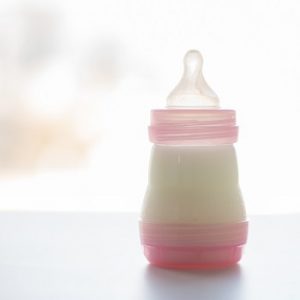
More evidence that low-calorie sweeteners are bad for your health
Studies show that artificial sweeteners can raise the risk of hypertension, metabolic syndrome, type 2 diabetes and heart disease, including stroke.

Natural Health News — A new international investigation has revealed a shocking lack of science behind the infant formula ranges sold by baby milk companies.
It shows that too often manufacturers add unnecessary ingredients with no proven benefits – so that they can charge a premium price for their products. While it is legal, such practices are unethical and in breach of a voluntary World Health Organization code on the marketing of breastmilk substitutes.
There is no question that exclusively breastfeeding your baby for the first 6 months of life – a practice recommended by every health organisation in the world – provides your baby with everything it needs to grow and thrive. Not just nutrition, but hundreds of non-nutrient factors which cannot be synthesised in the lab and which help protect against illness and promote optimal growth.
Formula you can trust?
Nevertheless there are women who choose not to breastfeed and a very small percentage physically can’t breastfeed. For these women and their babies, being able to trust that infant formula is providing the best possible nutrition is very important.
The new report by non-profit, UK-based Changing Markets Foundation challenges the idea that wide ranges of formula brands, each with different added ingredients do not cater to mothers’ or babies’ needs but instead exist purely to create a fear based market where mothers will pay a premium for certain brands.
» A new report highlights the extreme lengths infant formula manufacturers will go to sell their products.
» Tactics include adding unnecessary ingredients and then charging a much higher price for formula – a practice that can mean mothers around the world, anxious to give their babies the best, can end up spending a huge percentage of the family income just on infant formula.
» Formula companies also practice what they call ‘social listening’ where they eavesdrop on mothers’ social media conversations to learn how best to earn their trust and sell them products.
» The report calls for more stringent regulation of formula companies so that fewer products, and only those based on unequivocal scientific advice and with the highest quality of nutritional ingredients, are sold.
Higher prices
The report analysed the retail prices that companies around the world charge for infant formula.
The market, it seems, charges whatever it can get away with and this practice is highlighted by the fact that the same brands that may sell for wildly different prices in different parts of the world.
The most expensive products were found in China and Hong Kong, where families can spend US $286 and US $304 per month to feed a 2-3-month old baby, respectively, based on using the most expensive product in those markets.
Chinese mothers are still reeling from a scandal in which toxic melamine was added to cheap formulas to make them appear as if they had more protein in them than they did. Many infants were made ill and some died from drinking the adulterated formula.
This was in 2008, but many mothers still seek Western brands believing that they are better, or purer, than Chinese brands. Western brands capitalise on this fear by charging exorbitant prices for their products.
As a result, parents in China can spend up to 40% of their average salary on infant formula. In comparison, the most expensive formula in European countries will only cost 1-3% of an average salary.
Closer to breastmilk?
Another industry tactic identified in the report is the creation of different and more expensive varieties of formula with extra ingredients. These formulas with added fats, pre- and probiotics and certain nutrients, claim to make formula closer to breastmilk, to represent the latest developments in nutritional science, to satisfy hungrier babies, promote better digestion, and to aid sleep.
But, says the report, “There is little nutritional science and few beneficial health considerations behind their extensive product ranges.”
Social media spying
The report also highlighted the extent to which formula companies listen in on mothers’ social media posts in order to learn what they hope for – and what they fear – and then tailor their marketing outreach around that.
Infant formula manufacturers are very open about how they use internet platforms such as Facebook, as well as online mother and baby clubs (many of which are financed by formula manufacturers in the first place), to collect vital information on mothers, and to portray themselves as trusted ‘friends’ on the ‘mother’s journey’ in order to sell their products.
“Our report found that instead of nutritional science, companies are basing their selling strategies on market research and consumer preferences,” said Nusa Urbancic from Changing Markets Foundation.
“Product differentials are carefully and deliberately designed to appeal to the tastes and lifestyle preferences of parents, or their natural desire to give their babies the best possible start in life. As such, manufacturers can package these products in ‘premium’ ranges and charge high prices accordingly.”
Changes needed
The report calls for a comprehensive overhaul of global infant milk products and the introduction of stricter regulation, so that only those products based on unequivocal scientific advice and with the highest quality of nutritional ingredients are sold.
It also calls on governments to introduce and enforce national legislation that fully implements the WHO marketing Code and to ensure that the safety and nutritional quality and completeness of products is regularly verified.

Please subscribe me to your newsletter mailing list. I have read the
privacy statement